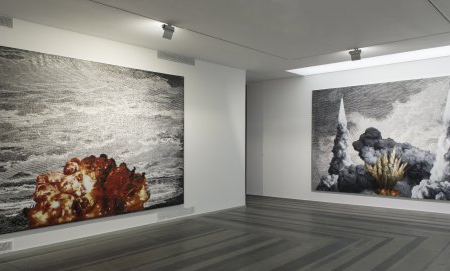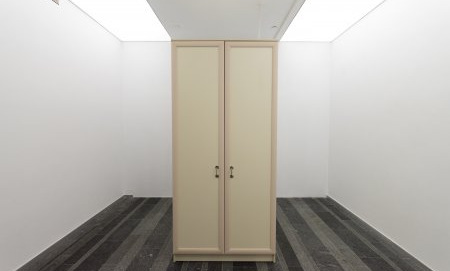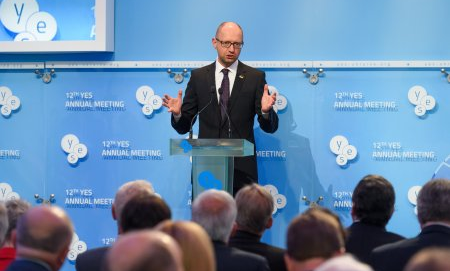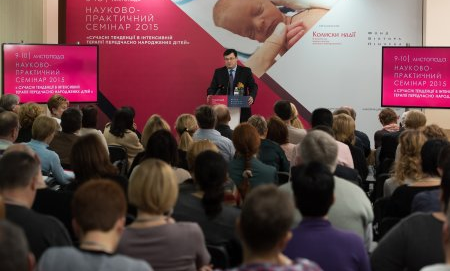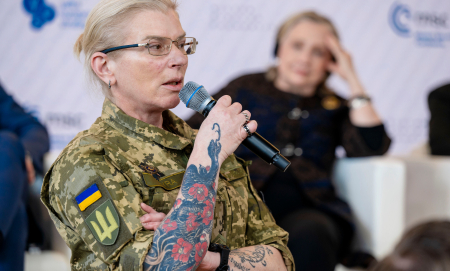News
Victor Pinchuk Foundation hosts conversation with Svyatoslav Vakarchuk and Timothy Snyder on the occasion of WEF 2024
On 16 Jan 2024, Victor Pinchuk Foundation hosted a conversation with Ukrainian prominent activist Svyatoslav Vakarchuk and Timothy Snyder, Richard C. Levin Professor of History and Global Affairs at Yale University, during the WEF in Davos (Switzerland). The event was held as a part of the Deciding Your Tomorrow project, organized by Victor Pinchuk Foundation and PinchukArtCentre in cooperation with the Office of the President of Ukraine. The panel explored scenarios for the future of Ukraine and its allies in the fight against Russian aggression. Global political leaders, thinkers and activists discuss key aspects of Ukrainians’ defense of life and freedom, and it offers a chance to revisit what is at stake in Ukraine.
Svyatoslav Vakarchuk’s appearance is made possible by the Victor Pinchuk Foundation’s and Svyatoslav Vakarchuk Foundation’s support for equipping the Recovery network of rehabilitation centres for wounded soldiers.
Timothy Snyder started the conversation by inviting the audience to consider the concept of “soft power”.
“There is a very important difference between Russia and Ukraine in this war. Russian soft power has been very effective, and it was very effective in 2014. However, it has been much less effective now. Not that it changed, it’s just that Ukraine had something different to do and to say. While Russia’s soft power is just manipulation and comes from a vacuum, Ukrainian soft power in this war has been something different. I think precisely because of that, it has worked better,” he said.
Timothy Snyder also recognized that more Ukrainian artists and creators have been getting prominence in the West: “One of the differences between now and 2014 is that there are just a lot more Ukrainian artists, filmmakers and writers, fashion designers, who are known in the West than 10 years ago.”
“I’ve started to change my own tastes in music in terms of who supports Ukraine or not,” Timothy Snyder admitted.
Svyatoslav Vakarchuk elaborated on the topic of soft power, saying that it’s “difficult to monopolize soft power in a democracy”.
“I think that the problem with Russian soft power is that they don’t know how to create something great and let it be. They always need to control, to impose something from the top and have everything centralized. To my mind, centralized ideas in the arts - which is a form of soft power - will never work in the long term,” he said.
Svyatoslav Vakarchuk suggested that Ukrainians use the opportunity while being on the world’s agenda to showcase their talent: “While Ukraine is still on the agenda, although not in top headlines as a year ago, we need to use it. To use it not for the sake of propaganda, but to help artists, musicians and other people contributing to soft power in the form of innovation and startups to use this door while it’s still open.”
“I’m very positive about Ukrainian culture. The irony is that regardless of what’s happening on the battlefield, I think that it will be making its way and conquering the world more and more. My dream is that it will coincide with Ukraine’s victory on the battlefield,” Svyatoslav Vakarchuk added.
“This Pandora’s box of Ukrainian culture has been already opened, I believe, and nobody will close it, regardless of the military success,” Svyatoslav Vakarchuk concluded.
Photos from the conversation are available here













